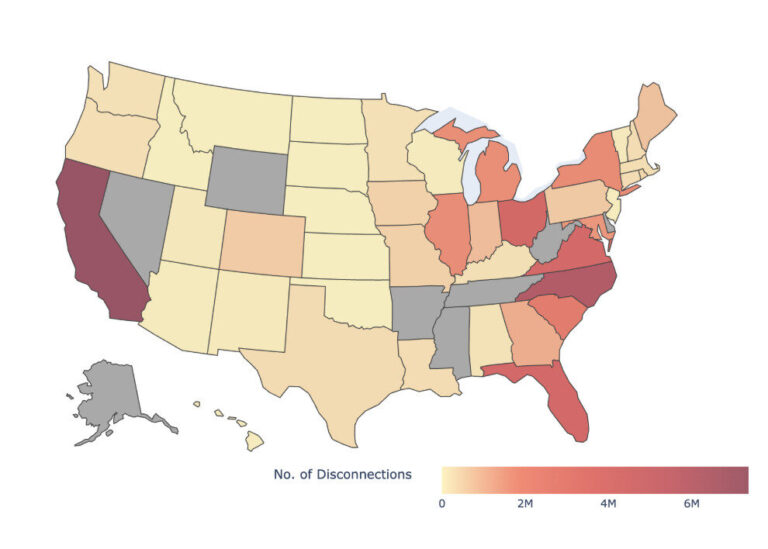Michigan’s utilities have a history of trying to block renewable energy increases like the one that could be on the ballot in November
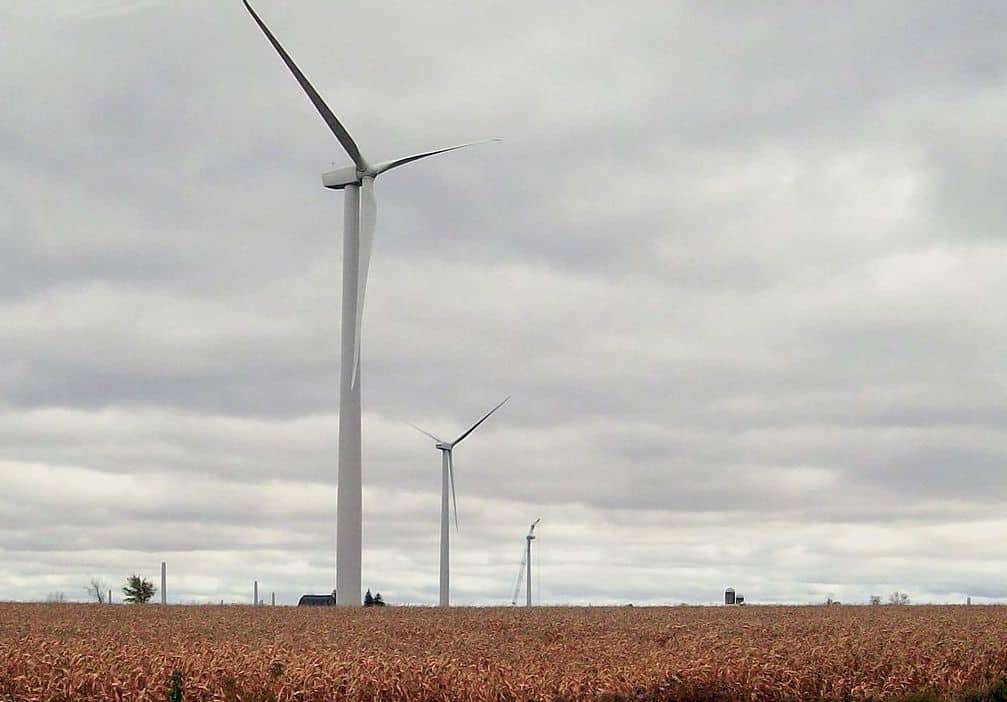
A ballot campaign to increase Michigan’s state renewable energy standard (RES) is in the works. The proposal, led by a group called Clean Energy, Healthy Michigan, asks voters to double the state’s current standard, which requires 15% of the state’s electricity to come from renewable sources by 2021, to 30% by 2030. Clean Energy, Healthy Michigan will have to collect 252,523 signatures within a 180-day window to make the ballot. The ballot campaign was first reported by Jonathan Oosting of The Detroit News.
Voters in the state have some experience with a similar proposal. In 2012, a campaign to increase the RES via a constitutional amendment did not pass, but it did give voters a chance to witness the behavior of their monopoly utilities to prevent the growth of renewable energy that year. Early polls showed that the measure enjoyed support from a majority of voters, but Michigan’s major electric utilities, DTE and Consumers Energy, spent millions of dollars to defeat them. In the subsequent years, customers have continued to watch utilities limit renewable energy growth at both the state and federal level.
DTE Energy now touts its carbon dioxide reduction goals while it and Consumers Energy remind people that they are ramping up their renewable energy investments. The new green rhetoric raises the question of whether the utilities might actually support the RES ballot proposal this time around. But based on their history of opposing these policies and DTE’s plans to build a $1 billion natural gas plant, it’s more likely that the utilities resort to fighting the RES once again. Indeed, DTE Energy and Consumers Energy reportedly told Clean Energy, Healthy Michigan that they don’t agree that the “renewable portfolio standard is the way to go.” Below is a brief summary of the history of the utilities’ opposition to renewable energy growth in Michigan.
In 2008, the Michigan legislature passed and Governor Jennifer Granholm signed Public Act 295 that required utilities in the state to generate 10% of their electricity from renewable energy resources by 2015. In February 2012, the Michigan Public Service Commission (PSC) issued a report that found the law was working and that over $100 million had been invested in the state as a result. The report also found that the cost of new renewable energy projects was cheaper than the cost of a new coal-burning power plant.
2012 Ballot Measure: Big Money, TV Ads, Debunked Statements
The successes of the law led to the 2012 ballot campaign titled Proposal 3, also referred to as 25 x 25. If passed, it would have amended the state constitution to mandate utilities generate at least 25% of their electricity from renewable energy by 2025. The proposal failed. It only received 36% of support thanks in large part to the massive funds spent to oppose the effort by DTE Energy and Consumers Energy. The proposal became the second-most expensive ballot campaign that year as DTE Energy and Consumers Energy contributed millions of dollars to The Clean Affordable Renewable Energy for Michigan Coalition (CARE) – a PAC set up to oppose the proposal. The committee’s treasurer was even DTE Energy’s then-Chief Accounting Officer, Donna England. (On February 6, 2018, CARE dissolved as a committee.)
Days before the election, the Michigan Campaign Finance Network found that Consumers Energy contributed $11,634,000 to the committee and DTE Energy contributed $11,570,000.
After the election, Dan Ferber of Midwest Energy News analyzed the defeat. He wrote:
“The most likely explanation comes down to money—and questionable claims about the ballot measure’s impact. The pro-amendment folks were outspent by a three-to-one margin, and CARE, the utilities’ opposition group, spent that money blanketing the airwaves with ads that sowed fear and confusion about Proposal 3, while making calmer, reasonable-sounding arguments to reporters.”
In addition to the money, Michigan became ground zero for a misinformation campaign. For instance, a CARE spokesperson said that the utilities do support renewable energy: “The stakeholders in our group, including the two major utilities, have invested heavily in renewable energy projects.” Yet the utilities spent millions of dollars to prevent the increase in renewable energy requirements.
The utility-funded group also ran misleading ads about renewable energy costs and warned of “California billionaires” wanting to alter Michigan’s constitution. But the group failed to publicize in the ads that the 2008 law was costing far less than anticipated, and even Consumers Energy reduced its renewable energy surcharge on several occasions.
Furthermore, the Koch-funded Mackinac Center for Public Policy and Beacon Hill Institute released a flawed and biased study about the costs of implementing Proposition 3, which was then used in CARE’s attack ads.
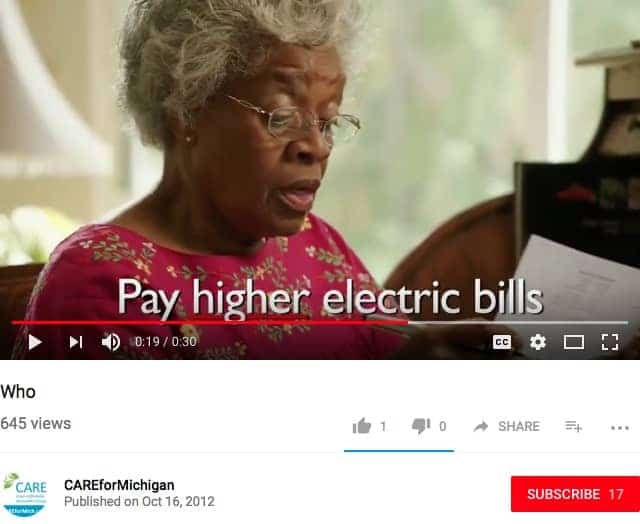

The Koch-funded Americans for Prosperity (AFP) also joined DTE Energy and Consumers Energy in opposing the RES increase. AFP sent mailers to voters that were reportedly one-sided and used debunked statements about the costs to implement Proposal 3.

2014-2016 Legislature Debates: More Money, More TV Ads
In 2015, as changes to the renewable energy standard were brought up in the legislature, the Sunlight Foundation revealed that DTE Energy and Consumers Energy had ties to a group called Citizens for Michigan’s Energy Future (CMEF), which worked to prevent legislation that would have deregulated the state’s energy industry, removed a cap on energy purchased from outside of the state, and countered a proposal filed by Democrats to increase the RES to 20% by 2022. Democrats and clean energy advocates pointed to a PSC report from 2014 that documented how $2.9 billion had been invested in the state and roughly 8,200 jobs had been created thanks to the RES, and the cost of a wind contract was half as expensive as those from 2009 and 2010.
One of CMEF’s directors was Eric Doster, a former counsel to the Michigan Republican Party and author of a book on Michigan campaign finance law, “Michigan Campaign Finance.” He also served as a registered agent for “Citizens for Energizing Michigan’s Economy” (CEME), which was another group that was set up to oppose 2014 legislation to allow power providers outside of Michigan to sell more electricity in the state. CEME ran ads that year that warned of rolling blackouts and skyrocketing electric bills if the state deregulated electricity.
One of the directors for the CEME organization was Howard Edelson, who also managed the utility-funded campaign to oppose the 2012 RES proposal. Edelson is a political consultant at The Edelson Group, campaign manager for Gov. Granholm’s 2006 reelection, and former President for the Great Lakes Renewable Energy Association. A second director for CEME was John Truscott, a public relations executive at Truscott Rossman, which managed the public relations for the 2012 utility-funded campaign.
Truscott Rossman’s website boasts of its success at its ability to get 2016 energy legislation (Senate Bills 437 and 438) enacted. The energy legislation, as initially filed, did not include an increase in the RES, and stand-alone legislation repealed it entirely, which DTE Energy and Consumers Energy supported, but SB 438 modestly increased the state RES to 15% by 2021 as a result of last-minute negotiations.
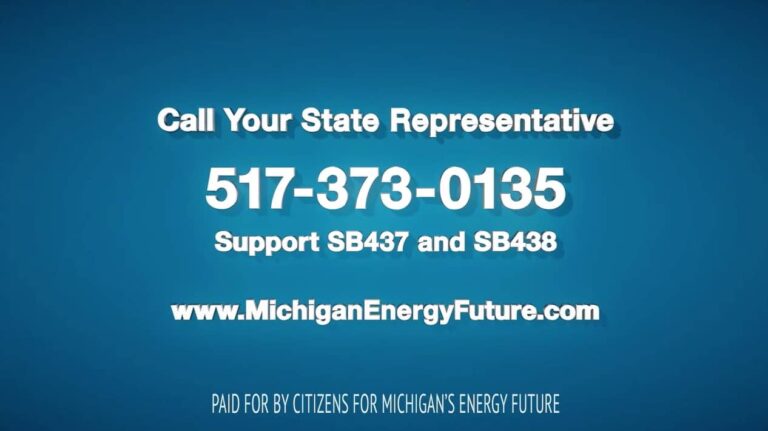
Current Fights: Undermine EPA’s Clean Power Plan, Build Expensive Natural Gas Plants, Limit Solar
Today, DTE Energy is attempting to get state regulators to approve its plan to build a $1 billion natural gas plant, likely to burn the gas transported through its NEXUS pipeline project – which is currently only 60% subscribed, meaning DTE’s $1 billion gas plant would help ensure the pipeline is profitable for DTE Energy and its pipeline partner. Critics have said that DTE Energy can save its customers millions of dollars over the next two decades if it instead builds a combination of wind and solar, and increases energy efficiency measures.
Consumers Energy, simultaneously, is holding up the implementation of renewable energy projects. In response, a renewable energy company filed a legal response on January 22 against the utility.
As DTE Energy and Consumers Energy have a history of working to undermine renewable energy policies at the state level, the two utilities have also been part of efforts to prevent the Obama administration’s Clean Power Plan from taking place, which would have further generated clean energy investments. DTE Energy and Consumers Energy are both members of the Utility Air Regulatory Group, an industry-funded group based in the law firm Hunton & Williams that regularly sues the EPA to prevent Clean Air Act safeguards, which included the Clean Power Plan. The two utilities also contributed thousands of dollars to the Republican Attorneys General Association, which in turn poured money to campaigns for those that filed suit against Obama’s plan.
In response to critics, DTE Energy likes to point to its commitment to reduce greenhouse gas emissions by 80 percent below its 2005 levels by 2050, which includes plans to close all of its coal plants and have 40% of its power come from renewable energy. But the goal is not a requirement, nor enforceable by regulators or lawmakers. It is only a goal – and the company, along with Consumers Energy, still has a long way to go to reduce fossil fuel generation, as illustrated by their fuel mixes.
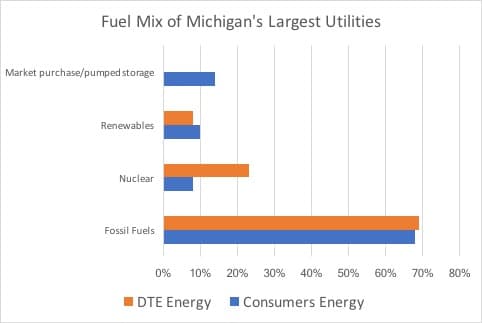
Given DTE Energy and Consumers Energy’s aggressive spending on unneeded gas infrastructure, and against renewable energy policies, it’s worth taking their voluntary commitments with a healthy grain of salt.
Photo: From Wikimedia Commons



